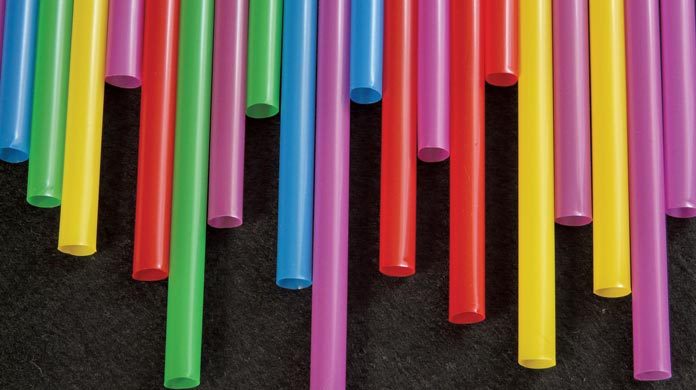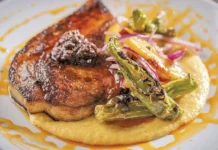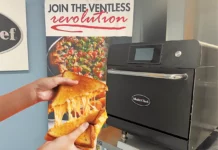
Article contributed by Ryan Gallagher, 20 Lemons LLC
Customers suck—it’s how they’ve behaved for decades. However, across the nation, restaurant owners and legislators are putting a stop to this behavior. No one can keep customers from asking for extra napkins or sending back food that they “didn’t order,” but restaurant patrons’ use of plastic straws can be restricted.
Up until about two years ago, the average American sucked down beverages through plastic cylinders without any idea that what they’d use for 30 minutes would take more than 450 years to naturally decompose. Nor did the average American understand the amount of energy it would take to recycle their single-use plastic product. But now, there is no doubt that the topic of single-use plastic pollution has permeated boundaries between passionate “greenies” and everybody else—making the conversation part of daily American dialogue. As a result, states, cities, and businesses all around the U.S. have begun to restrict or ban single-use plastic—many starting with plastic straws.
“Straws seem to be the first step for businesses to denounce single-use plastics,” said Zack Karvelas, a Fellow for Outreach at Clean Ocean Action (COA) and a working member of their campaign against single-use plastic. “COA gives businesses the framework for eliminating, reducing, and switching out their single-use plastic products for viable alternatives starting from straws, to takeout containers, and many more.”
A necessary service, considering that Americans use more than 500 million straws per day, according to the National Park Service. Hawaii and California have pending legislation that would outlaw plastic straws; cities like Malibu, CA, Seattle, WA, Monmouth Beach, NJ, and Miami Beach, FL have successfully passed bans on straws.
While legislation can take years to pass in some cases, businesses of all types have begun this process on their own. Large companies like Starbucks and Royal Caribbean Cruises, all the way down to local NJ businesses like Americana Kitchen & Bar and Langosta Lounge have decided to eliminate the use of plastic straws.
“We stopped using plastic straws on February 6th, 2017,” said Constantine Katsifis, President at Americana Hospitality Group and owner of Americana Kitchen & Bar. “It was an uphill learning curve with our customers because people didn’t really get it. But, now it’s in the news and people appreciate it.”
After learning about the idea at Animal Kingdom in Orlando, FL, Katsifis and company made the switch. Without any real marketing campaign to warn or educate customers, the restaurant group made the leap to a biodegradable, paper straw substitute.
“Marketing isn’t my thing. But we did a Facebook post when we first eliminated all straws, which meant 900,000 less straws per year,” said Katsifis. “The first time a person runs into this, it can cause some minor challenges. But we ignored it. If the customer didn’t want the paper straw, then we didn’t have a straw for them. Now, no one’s asking me why we don’t have plastic straws, I think they’ve heard enough about it to expect it.”
For Katsifis and the Americana Kitchen & Bar in East Windsor, NJ, it was easier to make the switch and put out the fires it caused on a customer by customer basis. For Langosta Lounge in Asbury Park, NJ, the straw issue took a few attempts to perfect.
“Since Sandy we’ve used biodegradable straws,” said Marilyn Schlossbach, the Executive Chef and Owner of the Marilyn Schlossbach Group. “They were made out of sugarcane. Then, we switched to a paper alternative about a year and a half ago.”
However, Schlossbach could not help but notice that despite these efforts, her campaign was being fought each step of the way. Her restaurants adorned posters on the wall and notecards on each table explaining why straws were only available upon customer request. Even so, patrons at Langosta Lounge, AP Yacht Club, and Pop’s Garage saw some customers getting straws and some not at all—causing confusion, complaints, and a headache for managers and servers alike.
 “A little over a year ago we just took [single-use straws] out of the pavilion and didn’t order any more. So, if someone was mad, they were mad because we didn’t have them—not mad because a table next to them got one,” said Schlossbach. “We got very minimal backlash in the last year. But still, a few people went online and said ‘F*** the seals,’ or ‘Who gives a crap about the turtles and dolphins.’ But, for us we say, ‘I guess you’re not our customer anyway.’”
“A little over a year ago we just took [single-use straws] out of the pavilion and didn’t order any more. So, if someone was mad, they were mad because we didn’t have them—not mad because a table next to them got one,” said Schlossbach. “We got very minimal backlash in the last year. But still, a few people went online and said ‘F*** the seals,’ or ‘Who gives a crap about the turtles and dolphins.’ But, for us we say, ‘I guess you’re not our customer anyway.’”
Both Katsifis and Schlossbach agree that a more thorough marketing campaign could have alleviated the straw chagrin for customers. While, “people don’t want to be preached to,” as Katsifis explained, both owners’ motivation was not to get favorable press or social media likes—they made the switch because they knew it was a step in the right direction.
It may be easy to identify single-use pollution as an issue, however it’s never quite as easy to decide what to do about it. The market for environmentally friendly straws and other hospitality products is saturating quickly. From products made of bamboo or paper, to reusable steel straws—it’s a long process to decide what products will minimalize environmental impact and also fit a business’s budget.
“COA helps restaurants conduct an audit of their single-use plastics, and then helps find the best alternatives. The ideal product is one that doesn’t go to waste at all and is reusable—like steel straws, but not all restaurants want to buy them. Compostable products have the potential to be a great alternative, however NJ does not currently have industrial-grade composting facilities to manage all of the waste properly,” said COA’s Karvelas. “So, until we create an industry around that, some of the better alternatives like bamboo, steel, or paper straws are a great place to start.”
The hope for non-profit, environmental organizations, is to use straws as an example that will wean businesses off all single-use plastics.
“I question why we even need [straws] in the first place. Why can’t we just drink out of a glass or cup? I never drink out of a straw at my house,” reasoned Katsifis. “Right now, everything else we use is paper and as a general rule try to avoid plastic. Even our takeout packaging is bamboo or palm.”
Businesses like these are standardizing the elimination process of single-use plastic.
“We’ve never used plastic or Styrofoam to-go containers. We use paper bags, not plastic. We don’t allow people to bring balloons for events in our restaurants,” said Schlossbach. “I think it’s a lot easier to live out of the world of single-use than people think. Eventually, the awareness will be like recycling was when that first started.”
While there are many different ways to get away from single-use plastics, the destination is the same. Getting rid of straws may seem like a trivial issue at first, however it’s simply the first step to a future where children can play on the beach without finding a seagull or turtle that was choked by a straw or plastic bag.
What’s more, the elimination of these plastic products will ensure that the land, oceans, and air are free from harmful plastics for humans and animals alike. So, after decades of straw-use, getting customers to stop sucking isn’t something that’ll happen overnight. However, trying to stray away from plastics today will at least ensure a future for customers to continue complaining about the waitstaff rather than the plastic accumulation in their backyard.
Ryan Gallagher is the Marketing Coordinator at 20 Lemons LLC, a full-service marketing company. Gallagher and the marketing company’s founder, Noelle Stary advise a wide variety of clients across NJ, NY, & PA who work in industries like Hospitality, Professional Services, Health & Fitness, Coworking, and more. With a background in Journalism and experience with 20 Lemons, Gallagher’s focus is writing marketing content, blogs, articles, and news for the 20 Lemons and her clients. For more information, visit their website.
Sources: 1 • 2 • 3 • 4 • 5 • 6 • 7 • 8























